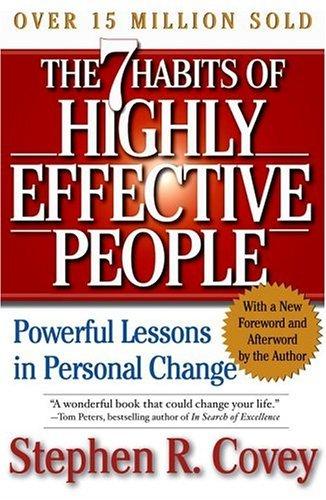In Stephen R. Covey’s famous book, The Seven Habits of Highly Effective People, he offers us seven habits to improve ourselves and our relationships. But one of the biggest parts of implementing the seven habits is understanding that we all have different perspectives and that we can all change them. We all see things differently, in our own “paradigms,” which causes problems when communicating. However, Covey says we can make paradigm shifts to better our own lives and our relationships. I experienced this on a personal level last year, and I’d like to share my experience.
Last year during fall break I had decided to go on a backpacking trip into the Grand Canyon with a few friends. I knew it would be hard and dangerous, but not until I looked at the sheer size of the canyon did I realize what I was getting into. And to make matters worse, there’s a sign at the start of Hermit’s trailhead that said, “Getting to the bottom: Optional. Getting to the top: Mandatory.” The self-doubt started to permeate my mind, but I put it aside for the beginning of the trip. Starting down the trail was amazing; the views were picturesque and the changing layers of rock were unbelievable to walk through. As we trekked further down into the canyon toward our campsite I started to wonder how exactly I was going to get out. At this point, hiking out seemed impossible. My legs were already exhausted from eight miles of hiking and my feet felt as if they were going to fall off. There was no way I felt good enough to hike up the steep switchbacks we had just hiked down. After all, wasn’t the hike down supposed to be the easy part? In my mind, I was literally digging myself deeper into a hole from which there was no escape.
We started the hike up later the next day. My legs were screaming at me to stop. The two guys in our group even had to take extra weight off my back. I felt like a chump. And then it hit me. I kept telling myself it was impossible. I kept screaming at myself that I had made the biggest mistake of my life going down there. I was holding myself back. But I started to trust myself. After about an hour I looked down at what we had accomplished and felt a bit of relief. For the first time the whole trip I started to have faith in myself and in my body that I would be safe. I suggested to the group that we hike further than planned. So, after loading up some of the weight that I had in my pack originally, we hiked another mile and a half to one of our favorite spots we stopped at on the way down. I climbed up to a lookout point that juts out into the canyon and took it in, realizing that all it took for me to get there was a change in perspective.
To me, Covey’s most important lesson of leadership in this book is understanding the power of a paradigm. Our perspectives have power over us, but we also have the power to change them. It is only when you realize that, that you can truly begin to change your behaviors and attitudes. And it is with the power of understanding that there are multiple ways to see things that we can foster great relationships when leading.


